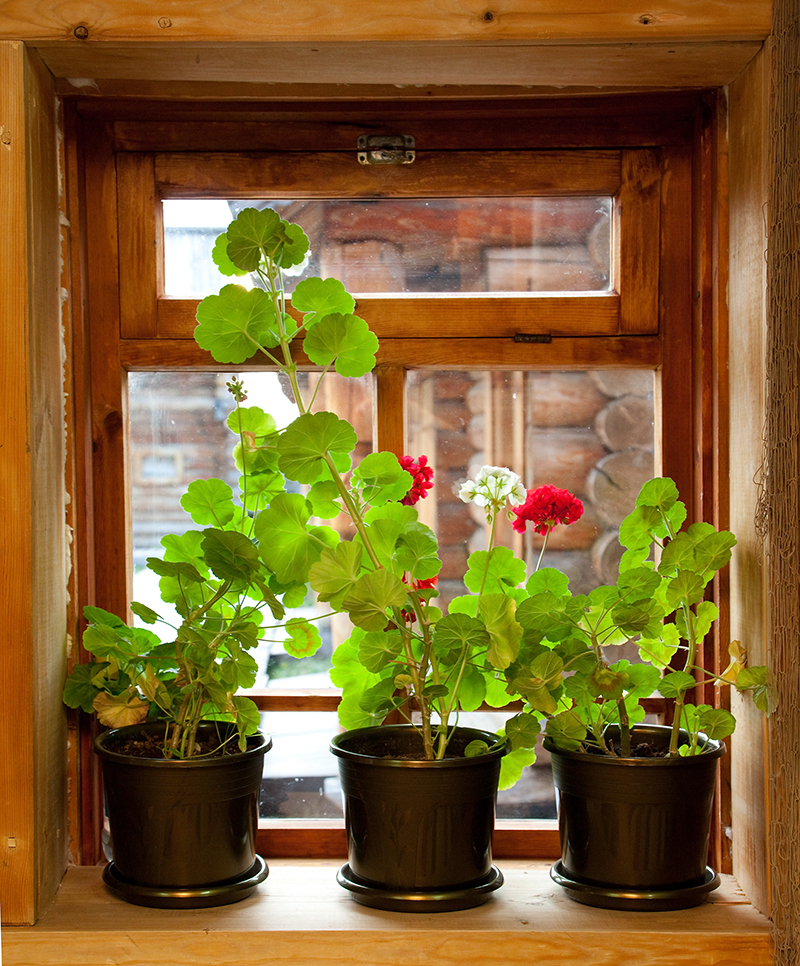How Your Birth Flower Connects to Your Personality Traits
Posted on 03/07/2025
How Your Birth Flower Connects to Your Personality Traits
Are you curious about how your birth flower might reflect your unique personality traits? While many people are familiar with birthstones and zodiac signs, birth flowers offer a beautiful, nature-inspired lens through which you can explore your character and emotional makeup. In this comprehensive guide, we'll uncover the origins of birth flowers, delve into the meanings behind each month's bloom, and explain how understanding your birth flower can enrich your sense of self and personal relationships.

Understanding the Origins of Birth Flowers
The tradition of assigning a birth flower to each month is believed to stem from ancient Roman customs, where flowers played a significant role in daily life, rituals, and celebrations. Over time, these traditions evolved, and by the Victorian era, the "language of flowers" or floriography had emerged. Flowers began to symbolize specific characteristics and emotional states, and assigning a unique flower to each month became a popular way to signify a person's birth and innate traits.
Beyond being simply a gift idea, birth month flowers now serve as an alternative means for self-reflection, much like astrological signs and gemstones. Each flower's history, symbolism, and botanical properties weave a story with parallels to the traits often seen in people born in that month.
Birth Flowers by Month and Their Personality Meanings
Below, you'll find an exploration into each month's birth flower, the traditional symbolism assigned to it, and the personality traits often connected to those born beneath its petals.
January: Carnation & Snowdrop
- Main personality traits: Loyalty, perseverance, grace.
The carnation symbolizes deep love, distinction, and fascination. People with this birth flower are known for their steadfast loyalty and resilience, much like this winter bloom that thrives in cooler months. Snowdrop, a lesser-known January flower, represents hope and new beginnings, highlighting the optimistic spirit of those born in January.
February: Violet & Primrose
- Main personality traits: Modesty, faithfulness, humility.
If your birth flower is the violet or primrose, you might embody a quiet strength and a sincere, caring nature. Violets stand for loyalty and humility, while primroses emphasize youthful love and the promise of new growth--ideal qualities for those born in the heart of winter.
March: Daffodil
- Main personality traits: Optimism, creativity, renewal.
March-born individuals light up the room like the daffodil itself. Synonymous with rebirth and cheerfulness, daffodils reflect an optimistic and innovative spirit. These people are often seen as beacons of hope and new beginnings, with an infectious zest for life.
April: Daisy & Sweet Pea
- Main personality traits: Innocence, playfulness, honesty.
The daisy, with its sunny disposition, symbolizes innocence and purity. April-born personalities tend to have a refreshing openness and earnestness. The sweet pea adds elements of bliss and gratitude, marking those born in April as charming and deeply appreciative of beauty.
May: Lily of the Valley & Hawthorn
- Main personality traits: Sweetness, humility, resilience.
Lily of the valley represents the return of happiness and humility, while hawthorn signifies hope--attributes that suit people born in May. These individuals radiate a quiet strength and a gentle, nurturing presence, much like their delicate but enduring birth flowers.
June: Rose & Honeysuckle
- Main personality traits: Passion, romance, sensitivity.
The iconic rose conveys deep emotional intelligence and a passionate core. June-born people are often sensitive, empathetic, and generous. Complementing this, the honeysuckle blooms with affection and unwavering devotion--perfect for those who cherish close relationships.
July: Larkspur & Water Lily
- Main personality traits: Positivity, openness, grace.
For those born in July, the larkspur brings associations with lightness, warmth, and an open heart. The water lily signifies purity and tranquility, suggesting a peaceful yet vivacious personality. July people are known for their compassionate nature and ability to uplift others.
August: Gladiolus & Poppy
- Main personality traits: Strength, integrity, imagination.
The gladiolus is often linked to strength of character, moral integrity, and determination. The poppy adds a dash of creativity, making August-born individuals both strong-willed and inventive. These people are often leaders who inspire with their vision and resolve.
September: Aster & Morning Glory
- Main personality traits: Wisdom, patience, delicacy.
Asters are emblematic of knowledge and patience, while morning glories suggest affection and thoughtfulness. September-born individuals are thus perceived as wise, considerate, and attentive to life's little details, much like the rich texture of these fall blooms.
October: Marigold & Cosmos
- Main personality traits: Warmth, creativity, boldness.
The marigold symbolizes warmth, creativity, and passion, making October personalities magnetic and vivacious. Cosmos adds a layer of order and harmony, hinting that October-born people often bring balance and cohesion to their social circles.
November: Chrysanthemum
- Main personality traits: Loyalty, honesty, joy.
November's birth flower is the chrysanthemum, revered for its beauty and strong seasonal association. Those born under this flower are steadfast friends, honest, and filled with a quiet joy, providing calm stability even in turbulent times.
December: Narcissus & Holly
- Main personality traits: Hope, optimism, resilience.
The winter blooms of narcissus and holly speak to the resilience and positivity of December-born individuals. Narcissus symbolizes hope and rebirth, while holly adds protection and cheer, helping those born in winter remain optimistic and steadfast through life's coldest moments.
Why Do Our Birth Flowers Reflect Our Personalities?
Understanding the symbolic language of your birth month flower can foster self-awareness and confidence. But how do these flowers really connect to who you are?
- Seasonal Energy: Each month holds a distinctive energy, and the birth flower chosen for it often reflects the mood, weather, or changes in nature at that time. For example, daffodils bloom in early spring, marking a time of renewal, parallel to March-born individuals' reputation for creativity and hopefulness.
- Historical Significance: Many flowers have rich histories and have played important roles in myth, culture, and herbalism. The stories we tell shape our identities, allowing birth flowers to serve as enduring symbols.
- Floriography (Flower Language): Victorians believed that the qualities of a flower--its color, shape, growing patterns, and uses--encode particular messages. Carrying or gifting someone their birth flower was considered a way to honor those traits in that person.
Birth Flower Personalities vs. Zodiac Signs
While both zodiac signs and birth flowers aim to uncover your essential qualities, birth flowers offer a more grounded, botanical counterpart to the mystique of astrology. If you're a fan of personalized gifts or natural wellness, looking into your birth month flower offers a fresh avenue for inspiration.
How to Use Your Birth Flower to Enhance Your Life
Once you've identified your birth flower and its personality meaning, you can weave it into your life and rituals in several creative ways:
- Decorate with Intention: Adorn your living space or work desk with your birth flower to serve as a daily reminder of your strengths and potential.
- Personalized Gifts: Present loved ones with gifts inspired by their birth month flower--think bouquets, jewelry, or art prints--communicating admiration for their unique traits.
- Mindfulness & Meditation: Use your flower as a focus point in meditation or journal about how its characteristics show up in your life.
- Gardening: Plant your birth month flower and observe it as it grows, applying its lessons (resilience, patience, beauty) to your own personal growth.
- Fashion & Accessories: Wear floral patterns, pins, or perfumes inspired by your birth flower, embodying its energy wherever you go.
Through these practices, you connect to tradition, nature, and your own inner world, turning an age-old custom into actionable self-care and enrichment.
Birth Flowers Around the Globe: Cultural Variations
It's important to note that while the lists above reflect Western tradition, birth flowers vary worldwide:
- Japan: "Hanakotoba" is the Japanese language of flowers, with unique meanings assigned to native blooms.
- United Kingdom: Old English and Celtic traditions emphasize local wildflowers for each birth month.
- Indigenous Peoples: Some communities tie birth flowers to moon phases, animal totems, and harvest cycles.
This cultural diversity enriches both the botanical world and our interpretations, adding layers of meaning based on geography and ancestry.

Frequently Asked Questions About Birth Flowers & Personality Traits
- Are birth flowers and birthstones related?
No, but both are symbolic traditions used to celebrate birthdays and personal qualities. Birth flowers focus on nature and myth, while birthstones derive meaning from geology and astrology. - Can I choose a different flower if mine doesn't "fit"?
Absolutely! Symbolism is a guide, not a rule. Many people resonate with multiple flowers, especially if they fall at the cusp of two months or have cultural ties to other blooms. - How can I learn more about my birth flower?
Consider researching your flower's history, appearance, and uses; visit botanical gardens; or speak with florists who specialize in symbolic arrangements. - Is it possible to mix zodiac and birth flower readings?
Yes! Some people enjoy blending astrological insights with flower symbolism for a richer understanding of themselves and their loved ones.
Conclusion: Embrace Your Birth Flower's Symbolism for Self-Discovery
Exploring the meaning of your birth flower and its connection to your personality can be an enlightening and joyful journey. These botanical symbols offer insight into your emotional makeup, strengths, and areas for growth, encouraging mindfulness and appreciation for nature's diversity. Whether you're looking for a thoughtful gift idea, a new self-care practice, or a novel way to celebrate your individuality, turning to birth flower personality traits nurtures self-love, connection, and wonder.
What does your birth flower say about you? Share your experiences or favorite flowers in the comments below, and let nature continue to guide your path of self-discovery!
Latest Posts
Flowers That Say Happy Birthday with Elegance
Dive into the World of Flowers: Which One Are You?
How Your Birth Flower Connects to Your Personality Traits
Find Out the Five Most Beloved Flowers for Valentine's Day Gifting





